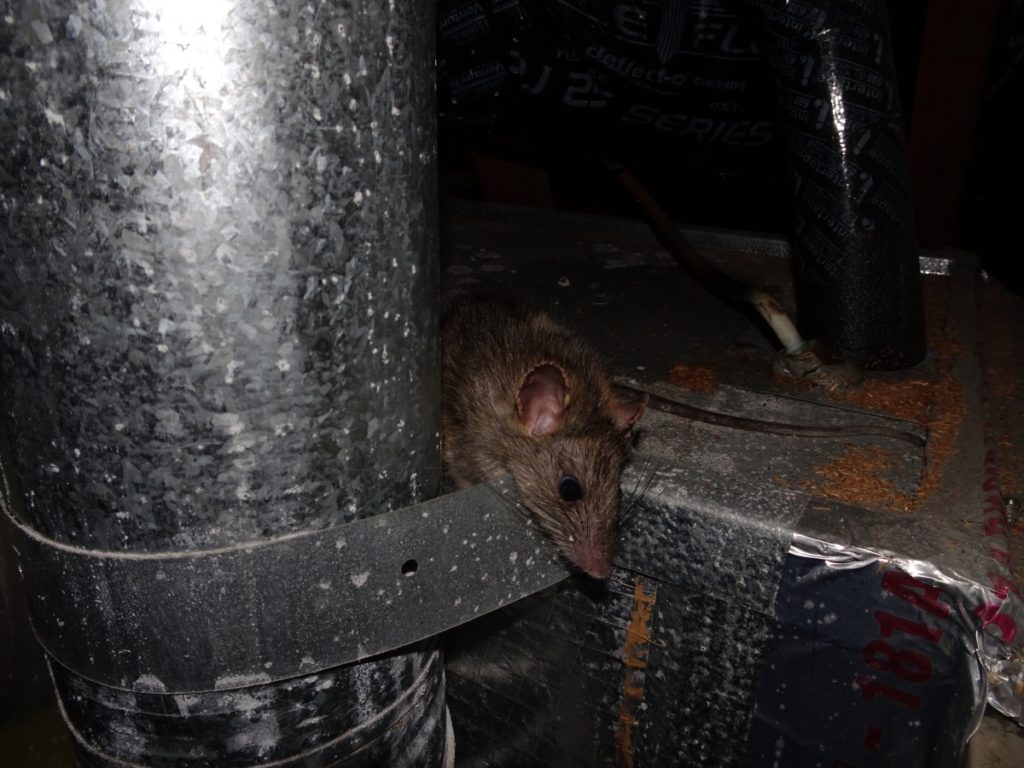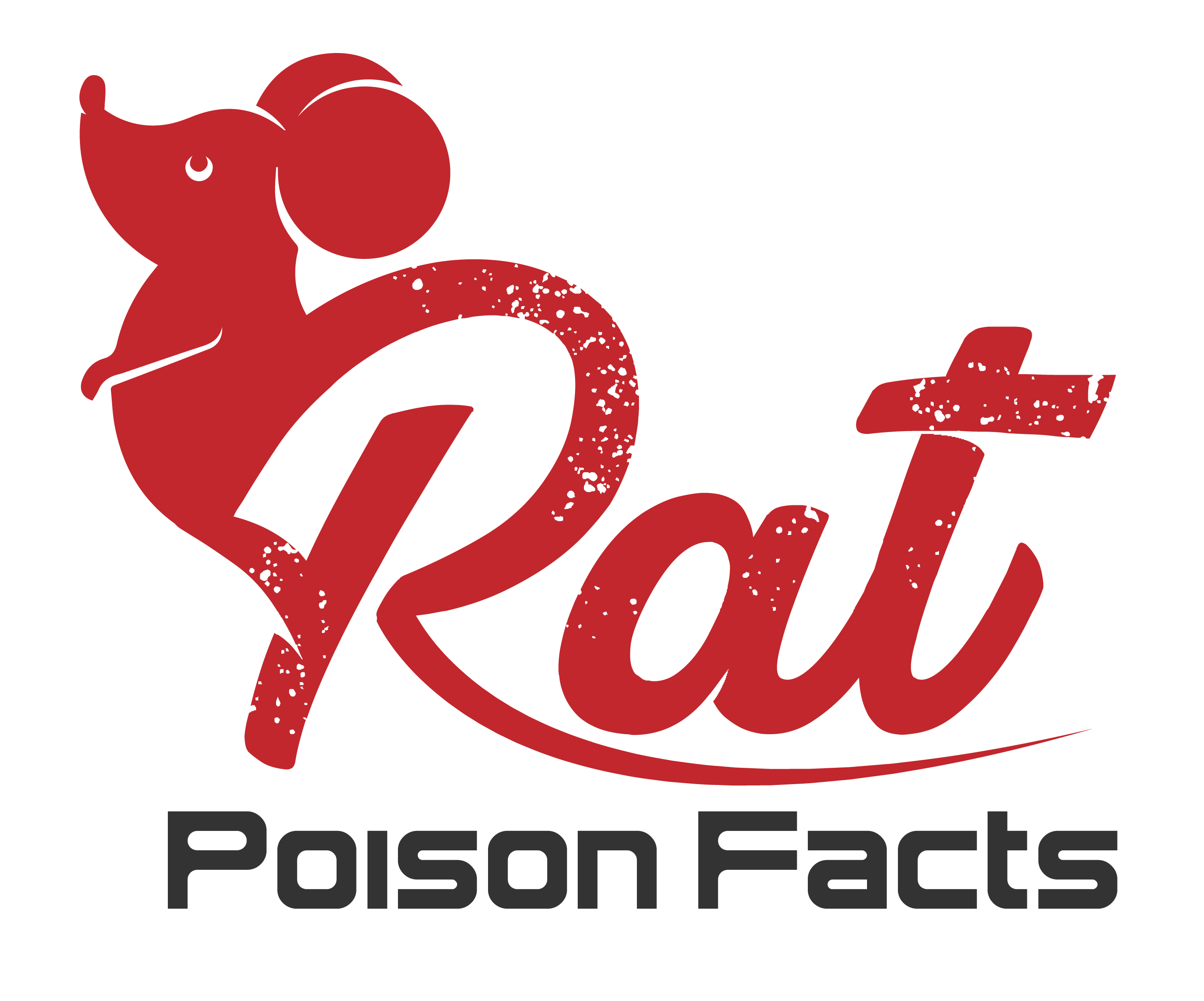
When you use poison to kill a rodent or another type of nuisance pest, you need to think about the greater implications of doing so. There is also a risk that people or other animals, like your pets, will come into contact with the poison, either directly or indirectly. Because of this, both primary poisoning and secondary poisoning are concerns.
Primary vs Secondary Poisoning
Humans are at risk of both primary and secondary poisoning with rodenticides and other pest-control poisons. Primary poisoning would be direct contact with the poison while secondary poisoning refers to contact with the poisoned animal that spreads some of the poison to the human.
Some examples of primary poisoning would be:

The best example of secondary poisoning in humans would be touching the poisoned animal when it is dead to remove it, failing to wash your hands, and then touching your eyes or mouth. You could also get secondary poisoning if you chose to eat a poisoned rodent, but this is unlikely due to cultural norms and customs.
It is possible that a human would be poisoned if they eat an animal that ate a poisoned animal, or eat a non-target animal that comes into contact with the poison by accident.
Symptoms Associated with Secondary or Primary Poisoning in Humans
If you are concerned about the risks of secondary poisoning to humans, you should familiarize yourself with the signs and potential results of exposure to some of the more common ingredients in rodenticides.
Remember that the symptoms of secondary poisoning will be the same as those for primary poisoning.
You should also keep in mind that in many cases, humans and animals will show similar symptoms as a result of the poisoning.
Anticoagulant Rodenticides
Most of the rodenticides on the market are anticoagulants. Secondary poisoning of these can lead to:
These signs are possible across all animals.
For people, sudden bleeding from the skin, gums, or nose is more likely to be noticed. Sometimes, you may never even notice symptoms if you consume small enough quantities. If you are truly concerned about your children getting into this type of rodenticide, consider one of the products that has dye to help you tell if your child touches or eats it.
Bromethalin
Ingesting bromethalin can lead to heightened light sensitivity, seizures, and muscle tremors in the case of large doses across a range of animals. People who are exposed to this chemical may experience altered mental states.
Cholecalciferol
People exposed to this chemical are likely to experience increased urination along with unusual thirst. If the exposure lasts long enough or the increased calcium levels from it last, this can also lead to kidney and heart damage.
Strychnine
Exposure to this common poison can lead to severe involuntary muscle spasms, potentially including extremely extending the limbs. People may start experiencing symptoms within just 15 minutes. Death can occur due to impaired breathing.
Zinc Phosphide
Humans who consume this common active ingredient in rodenticides will experience:
If you breathe in the dust or gas associated with zinc phosphide, this can lead to extreme difficulty with breathing and anxiousness.
Reducing the Risk of Secondary Poisoning in Humans
The first thing to do in order to avoid secondary poisoning is to never eat an animal that may have been poisoned. This will likely not be an issue culturally, but it is still worth mentioning. It is more likely that a human will accidentally consume an animal that has consumed a poisoned animal, so keep that possibility in mind as well. You should also remember that even if an animal was not your intended poison target, it may have consumed the poison. Therefore, take care when using rodenticides close to livestock that you plan on eating in the future or selling for food.
You also want to be extremely careful whenever you handle the poisoned animals. Handling and disposing of the animals is the primary method of secondary poisoning for humans, so take precautions. Wear gloves and never touch the dead rodents directly. After you dispose of them, be sure to thoroughly wash your hands and any other area that was exposed.
Be Aware of Primary Poisoning as Well
When using rodenticides, you should also be aware of the risk of primary poisoning in humans. If you have small children in your family or anyone who would be likely to touch the poison or put it in their mouth, ensure that all baits and poisons are well out of reach.
Take similar precautions when disposing of the leftover poison, such as empty bait trays. Even if it all appears to be gone, there will still likely be trace amounts present.
What to Do If Poisoning Occurs
If you ever suspect poisoning from a rodenticide or other poison, you should always visit the doctor right away. This is true regardless of whether it was secondary or primary poisoning. Bring as much information with you to the doctor as you can, including the type of poison you were exposed to and how you think the exposure occurred. In the case of severe symptoms, you will need to go right to the emergency room for prompt treatment. If you are unsure whether the situation warrants a trip to the ER or your regular doctor, you can always call your doctor and ask for their recommendation.
